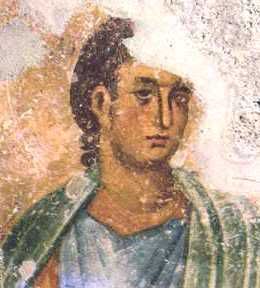
If you have, then you're normal. It just doesn't make sense, does it? I mean, Jesus dies on the cross, takes care of our sin and God's wrath, accomplishes forgiveness once and for all, makes peace with us and God, and all we have to do is have faith and it's ours. So why do we have to continue to ask for more forgiveness? It's like asking Jesus to die again (Heb 6:4-6). If we have to ask for it again, this means that forgiveness depends on our asking. This means that if you don't ask, God doesn't forgive. If God doesn't forgive, He's angry. If He's angry, Jesus' death (being the satisfaction of God's anger) means nothing anymore.
So then, if Jesus only had to die once for all sin, and we only have to partake of it once, we do not need to ask for forgiveness, because forgiveness continues according to the cross, not continual confession. So then, what does 1 John 1:9 mean?
A lot of teachers 1 John as being about fellowship with God and other believers. This is because they probably don't know much about the history behind it. They see it as a divine fiat, a pie out of the sky book. 1 John is a letter written to Christians way back a long time ago. The group of Christians John wrote to were known as the Johannine Community. Within their midst, their were Gnostics, specifically a branch known as Docetists. Now I could go into Gnosticism right now, but I'd never finish. So, to make things short, the Docetists didn't believe they had any sin. They essentially believed that all flesh was sinful (hence, they believed Jesus was pure spirit and not in flesh), and they believed that all spirit was good. Therefore, they were in a sinful flesh, but they were good. For this reason, they didn't believe that Jesus died for our sins. So, John is addressing everyone in the church. The letter could only be hand-written (no typewriters), so it would be read before the whole church at once by an elder. So, again, John is addressing everyone. So, he states a few conditional clauses to show people who knows Christ and who doesn't. 1 John 1:9 is one of these. 1 John 1:8 and 1:10 are crucial to understanding 1:9. This isn't a list of separate things, it's a flowing stream of thought. According to 1:8 and 1:10, if we say we don't have any sin, we are lying and calling God a liar since he charges us with sin. Also, we don't have God. So, he's saying, God has charged the whole human race with sin, and anyone who says different is calling him a liar and doesn't know Him. In 1:9, he uses the term homologeo, which we tranlate confess. It can also be translated acknowledge, agree, affirm. So, John is saying that if we (anyone, any man) affirms or acknowledges his sin, he count on God to take care of all of it. This is a conditional clause to say that if you've done this, you're good to go, and if you haven't, you're in trouble. Make since now?
